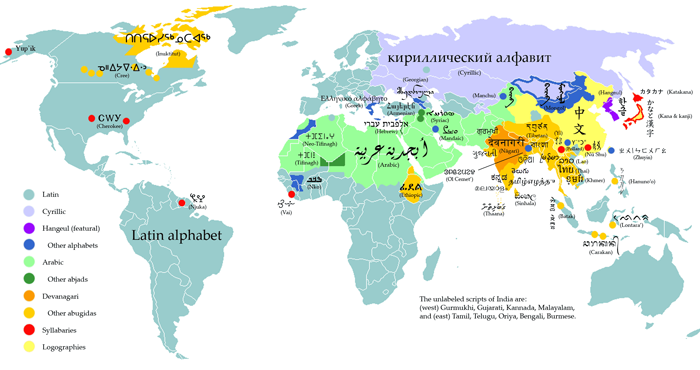Menu
Install the app
How to install the app on iOS
Follow along with the video below to see how to install our site as a web app on your home screen.
Note: This feature may not be available in some browsers.
You are using an out of date browser. It may not display this or other websites correctly.
You should upgrade or use an alternative browser.
You should upgrade or use an alternative browser.
Greek Mythology Community
Anoyone know What these letters mean? Picture below
- Thread starter Hennyb
- Start date
1 - 2 of 2 Posts
Rízes Hellenic Genealogy
New member
This is a very poor representation of Greek History/Mythology and it's writing. Who ever designed this does not know what they were doing/creating.
The people here are Perseus holding the head of Medusa (seen below)

As for the text... It's Mongolian and NOT Greek. (see below)

 www.smashingmagazine.com
www.smashingmagazine.com
Whoever designed this for you should give you a refund. LOL...
The people here are Perseus holding the head of Medusa (seen below)

Perseus with the Head of Medusa Metal Print by Zbignev Leonovic
Purchase a metal print of the drawing "Perseus with the Head of Medusa" by Zbignev Leonovic. All metal prints are professionally printed, packaged, and shipped within 3 - 4 business days and delivered ready-to-hang on your wall. Choose from multiple sizes and mounting options.
fineartamerica.com
As for the text... It's Mongolian and NOT Greek. (see below)

The Beauty Of Typography: Writing Systems And Calligraphy, Part 2 — Smashing Magazine
The beauty of writing systems is that each has something unique from which to draw inspiration. Two weeks ago, [in the first part of this article](https://www.smashingmagazine.com/2010/05/18/the-beauty-of-typography-writing-systems-and-calligraphy-of-the-world/), we covered Arabic and East-Asian...
Whoever designed this for you should give you a refund. LOL...
1 - 2 of 2 Posts
JOIN THE DISCUSSION AND READ OTHER GREEK INFO:
Aphrodite - Greek Goddess of Love
- dimi_pat
- Greek Mythology Forum
- Replies: 1
Ahead of Valentine's Day, I thought I'd share some things that I thought were interesting about Aphrodite, the Greek Goddess of love:
1. Aphrodite Was Born from Sea Foam.
In Greek mythology, it's said that Aphrodite was born from the sea foam that formed when Cronus cut off Uranus's genitals and threw them into the ocean. As the spirit of desire and physical attraction, Aphrodite's birth story reflects the power of nature and the irresistible force of passion.
2. She Was Married to Hephaestus.
Despite her reputation as the goddess of love and beauty, Aphrodite had a less-than-romantic marriage with Hephaestus, the god of blacksmiths and volcanoes. Hephaestus was unattractive and had a limp, and Aphrodite had several affairs with other gods and mortals. To me, this seem like an unlikely match.
3. She Possessed a Magic Girdle.
To make herself even more desirable and seductive, Aphrodite had a magic girdle that could make anyone fall in love with her. It's said that she used this girdle to win the hearts of both gods and mortals and cause conflicts and jealousy among them.
4. She Had Children with Several Gods and Mortals.
Aphrodite was famous for her many love affairs, and she had children with several gods and mortals. Her most famous son was Eros, the god of love and passion, who was sometimes depicted as her lover as well.
5. She Was Worshiped throughout Ancient Greece.
As the goddess of love and beauty, Aphrodite was a popular deity throughout ancient Greece and was worshiped in many cities and temples. She was also associated with fertility, sexuality, and even war, as seen in her role as a protector of soldiers and sailor.
6. Her Symbols Included Doves, Roses, and Mirrors.
Like most deities, Aphrodite had several symbols that represented her qualities and powers. Her most common symbols were doves, roses, and mirrors, which reflected her beauty, love, and vanity.
1. Aphrodite Was Born from Sea Foam.
In Greek mythology, it's said that Aphrodite was born from the sea foam that formed when Cronus cut off Uranus's genitals and threw them into the ocean. As the spirit of desire and physical attraction, Aphrodite's birth story reflects the power of nature and the irresistible force of passion.
2. She Was Married to Hephaestus.
Despite her reputation as the goddess of love and beauty, Aphrodite had a less-than-romantic marriage with Hephaestus, the god of blacksmiths and volcanoes. Hephaestus was unattractive and had a limp, and Aphrodite had several affairs with other gods and mortals. To me, this seem like an unlikely match.
3. She Possessed a Magic Girdle.
To make herself even more desirable and seductive, Aphrodite had a magic girdle that could make anyone fall in love with her. It's said that she used this girdle to win the hearts of both gods and mortals and cause conflicts and jealousy among them.
4. She Had Children with Several Gods and Mortals.
Aphrodite was famous for her many love affairs, and she had children with several gods and mortals. Her most famous son was Eros, the god of love and passion, who was sometimes depicted as her lover as well.
5. She Was Worshiped throughout Ancient Greece.
As the goddess of love and beauty, Aphrodite was a popular deity throughout ancient Greece and was worshiped in many cities and temples. She was also associated with fertility, sexuality, and even war, as seen in her role as a protector of soldiers and sailor.
6. Her Symbols Included Doves, Roses, and Mirrors.
Like most deities, Aphrodite had several symbols that represented her qualities and powers. Her most common symbols were doves, roses, and mirrors, which reflected her beauty, love, and vanity.
Accurate movies about Greek mythology?
- acamp7
- Greek Mythology Forum
- Replies: 1
I am looking for some "accurate" movies that have Greek mythological topics. I say "accurate" because how can we really even know? Many of the stories were handed down through the generations, and some even may have been lost. I guess I mean accurate according to what has been established from works that have survived.
I found this video - has anyone watched these?
I found this video - has anyone watched these?
Afterlife Beliefs in Greek Mythology?
- toniiv
- Greek Mythology Forum
- Replies: 1
What did Ancient Greeks believe about the afterlife? I've heard a few different stories... I'm particularly drawn to Ancient Greece's take on life after death.
Was there a uniform belief system, or did it vary significantly among different cities or periods? How did their beliefs influence their daily life and practices? I'm also curious about the role of mythological figures like Hades and the concept of Elysium.
If anyone has any expertise, recommended readings, or can point me to resources where I might be able to gather detailed insights into these spiritual aspects of Ancient Greek culture, I would greatly appreciate it.
Was there a uniform belief system, or did it vary significantly among different cities or periods? How did their beliefs influence their daily life and practices? I'm also curious about the role of mythological figures like Hades and the concept of Elysium.
If anyone has any expertise, recommended readings, or can point me to resources where I might be able to gather detailed insights into these spiritual aspects of Ancient Greek culture, I would greatly appreciate it.
About Theogony by Hesiod
- toniiv
- Greek Mythology Forum
- Replies: 0
This poem has been one of my favorites for a while. I think everyone interested in Greek Mythology should read it! I thought I'd give you a summary:
Hesiod begins by invoking the Muses to guide him in recounting the story of the origins of the gods. He describes Chaos as the initial void from which the first gods emerged. From Chaos came Gaia (Earth), Tartarus (the Underworld), and Eros (Love), setting the stage for the creation of the cosmos.
Gaia gives birth to Uranus (the Sky), who becomes her husband and the father of the Titans, Cyclopes, and Hecatoncheires (Hundred-Handed Ones). Uranus, fearing the power of his offspring, imprisons them within Gaia's womb. Gaia urges her children to rebel, and her Titan son Cronus castrates Uranus, seizing power for himself.
Cronus becomes the ruler of the cosmos but fears a prophecy that one of his children will overthrow him. To prevent this, he swallows each of his children upon their birth, except for Zeus, who is saved by his mother Rhea and hidden away. Zeus grows up and defeats Cronus, establishing himself as the king of the gods.
The poem then describes the Titanomachy, the epic battle between Zeus and the Titans, which ends with the Titans' defeat and their imprisonment in Tartarus. Zeus and his siblings, the Olympian gods, become the rulers of the cosmos.
The narrative continues with the story of the Gigantomachy, the battle between the gods and the Giants, and other myths surrounding the gods' interactions with mortals and each other.
Hesiod begins by invoking the Muses to guide him in recounting the story of the origins of the gods. He describes Chaos as the initial void from which the first gods emerged. From Chaos came Gaia (Earth), Tartarus (the Underworld), and Eros (Love), setting the stage for the creation of the cosmos.
Gaia gives birth to Uranus (the Sky), who becomes her husband and the father of the Titans, Cyclopes, and Hecatoncheires (Hundred-Handed Ones). Uranus, fearing the power of his offspring, imprisons them within Gaia's womb. Gaia urges her children to rebel, and her Titan son Cronus castrates Uranus, seizing power for himself.
Cronus becomes the ruler of the cosmos but fears a prophecy that one of his children will overthrow him. To prevent this, he swallows each of his children upon their birth, except for Zeus, who is saved by his mother Rhea and hidden away. Zeus grows up and defeats Cronus, establishing himself as the king of the gods.
The poem then describes the Titanomachy, the epic battle between Zeus and the Titans, which ends with the Titans' defeat and their imprisonment in Tartarus. Zeus and his siblings, the Olympian gods, become the rulers of the cosmos.
The narrative continues with the story of the Gigantomachy, the battle between the gods and the Giants, and other myths surrounding the gods' interactions with mortals and each other.
Janus - God of Beginnings
- paharo45
- Greek Mythology Forum
- Replies: 4
I learned recently of Janus, the Roman God of Beginnings. The month January, I believe, is named after this God.
Many of the Roman Gods and Goddesses have Greek counterparts. Does Janus?
If so, I think that would be an interesting god to learn about. I have to be honest - I am not sure there is a counterpart. I have been searching but there either isn't enough information online, or there really is no equivalent.
Do you guys have any idea?
Many of the Roman Gods and Goddesses have Greek counterparts. Does Janus?
If so, I think that would be an interesting god to learn about. I have to be honest - I am not sure there is a counterpart. I have been searching but there either isn't enough information online, or there really is no equivalent.
Do you guys have any idea?
Share and discuss Greek mythology!
WorldwideGreeks.com is a free online forum community where people can discuss Greek food, travel, traditions, history and mythology.
Join Worldwide Greeks here!
Join Worldwide Greeks here!
JOIN COMMUNITY FOR FREE
LOGIN TO YOUR ACCOUNT



